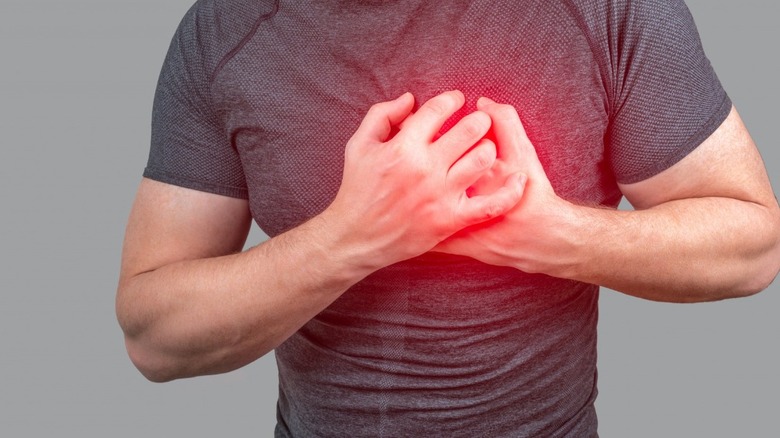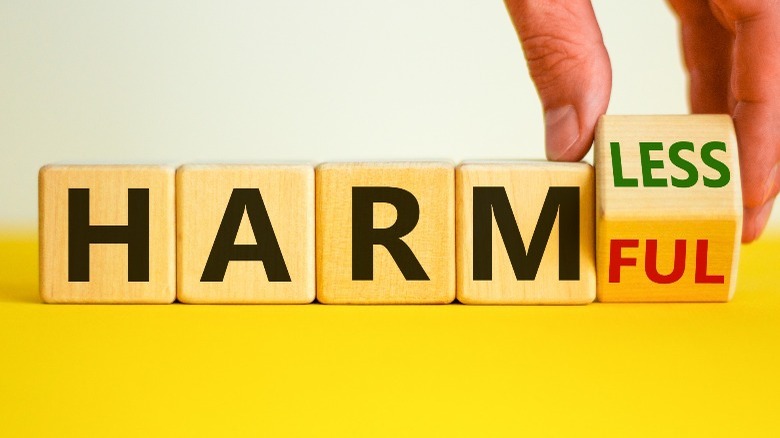If You Have Sudden Sharp Pain In Your Chest That Disappears Quickly, It Could Be This
For most people, pain is an inevitable part of life. According to a 2012 survey, many adult Americans experience types of pain in one form or another (via National Institutes of Health). However, MedlinePlus says that uncomfortable sensations — like burning, soreness, or throbbing — are examples of pain signals from your nervous system that let you know something might not be right.
Some pains are intense and short-lived — called acute pain — and usually occur in response to a particular event like falling down or getting surgery (via Cleveland Clinic). Acute pain should cease when the underlying cause is treated. On the other hand, chronic pain is a type of long-term pain that can persist after an ailment or trauma has healed; it can even occur without any identifiable bodily harm.
One of the most common forms of pain in the world is chest pain, which affects an estimated 20% to 40% of the population (via Medical News Today). While chest pain may be a sign of a serious health issue — related to the heart or the lungs for example — sometimes it is relatively harmless (via WebMD). Here's everything you need to know about common chest pain that is not as dangerous as it feels.
Precordial catch syndrome: symptoms, causes, and treatments
If you have a quick chest pain that intensifies when you take a deep breath or move around, it might not be a heart attack. Instead, you may have precordial catch syndrome (via WebMD). Although this kind of pain may feel like someone thrust a sharp object near your heart, the pain should subside in as little as thirty seconds or as long as a half hour. Notably, a brief episode of pain should be the only symptom of this condition.
According to Healthline, precordial catch syndrome typically occurs in children and young adults — most people outgrow it in their 20s. While the exact cause(s) of precordial catch syndrome is unknown, Healthline says that a growth spurt, injury, or even bad posture can aggravate nerves, leading to the pain.
Treatment options vary for precordial catch syndrome. Sometimes no treatment is necessary (per Medical News Today). Some people like to avoid as much pain as possible until the episode ends. Others face the pain head-on, and take a few deep breaths to make it stop. A doctor may recommend non-prescription anti-inflammatory medication. If the pain is posture related, try to sit tall and straighten your back.
Even though chest pain is usually alarming, remember that this condition is usually harmless. If you experience chest pain that doesn't go away or any other symptoms, contact your doctor immediately.


